Recently, someone on Twitter asked how quickly an immigrant loses ties to his/her heritage. The answer varies, but for me, it was within two short years. At age 12, my identity became hyphenated: Asian-American. Yet with an concerted effort to fit in, I quickly dropped the Asian part of the word.
Over the last decade, I’ve been reexamining both parts of my identity as an Asian-American. Since May is Asian Pacific American Heritage Month (which I didn’t know existed until two weeks ago), I’ve read quite a few interesting essays from fellow Asian-Americans. I have been inspired to share my story of an identity lost, and an effort to reclaim it.
Who is Santa Clause?
My uncles is a White-American from Missouri, and somehow, he ended up in Taiwan and married my Taiwanese aunt in the late 1970s. With that turn of events, my life was changed before I was even born. I had a typical Taiwanese childhood, with two 100% Taiwanese parents, yet my life had a slight American twist. My “American Aunt and Uncle” would bring suitcases full of American goodies on their visits. Like many American kids, I grew up eating Cheerios and Pop-tarts, alongside dan-bing 蛋餅 and yiu-tiao 油條.
Despite never visited a single church and had no concept of Christianity, I celebrated the Santa Clause version of Christmas. I remember believing in Santa, because those exotic gifts were definitely not from Taiwan. The belief was shattered in second or third grade, when my mother made the rookie mistake of using wrapping paper I had selected to wrap those exotic presents, and my friend had no idea what I was talking about when I asked if she got something from Santa.
Realizing other kids didn’t get to enjoy Christmas, and have never had Cheerios was eye-opening; It was my first realization that my life isn’t exactly the same.
Visa Lottery
In the late 1990s, my family won the visa lottery. It was not technically a lottery, but the experience sure felt like one. Paperwork that my mother had filed a decade prior, in an attempt to move to the US with my aunt, before she was even married, was approved. Yet, life has changed for her immensely over the decade. My mother was by now married, with a successful career, and two kids. This was no doubt a major decision, and soon we took a trip to St. Louis, Missouri, to see what life there was about. But first, a stop in Disneyland (when in Rome, right?).
Looking back, this was clearly the “persuasion” trip. Disneyland was SO fun (of course, I was 10). The houses in Missouri were MASSIVE compare to our 3-bedroom, 1,000 squared-foot apartment. The shops have so many choices. But above all else, America was the place to be, and schools were known to be EASY. Sign. Me. Up. It was not a difficult sell.
What I didn’t quite realize it at the time, was that I would be the “guinea pig”. While my family made up their mind about moving to the U.S., I was sent to live with my aunt for two years before my entire immediate family joined me. Perhaps I was too young to process it all, or perhaps I was drawn to a new exotic experience, and the lure of easy schooling, I wasn’t scared. How lucky I was to live the American Dream!
Banana in the Making
Initial Culture Shock
I remember that first day of middle school clearly. Uniform was required in Taiwan, so I did not have any fashion sense, which meant I wore a strange outfit on my first day. But that wasn’t a priority, I was excited to go to school and learn some stuff. That excitement quickly wore off as I hit severe culture shock.
What is this squiggly writing on the board? I cannot read that. Turns out, that’s cursive. I was never taught that. When people spoke to me, I understood only 60%. That’s fine, I didn’t need to talk that much. Math class was a total joke. The most troubling part? Why do everyone seem to know each other already? Apparently it’s a relatively small school district.
I was the only Asian kid. I think the school was 95% white. Kids asked me to say things in Chinese like I was some sort of a circus monkey. I wanted to be left alone. I didn’t want to be that new girl from Taiwan who can speak Chinese. No one told me that embracing my cultural identity is important. Like any teenager, I just wanted to fit in, and be exactly like everyone else around me.
No one seem to care about school; it wasn’t cool to talk about academics. I had no concept of what social activities took place on weekends. Social references were completely lost on me. Through observing my peers, limited information from television, and teen magazines from the library, I desperately cobbled together the essentials to be a teenager in this St. Louis suburbia version of America.
The Need to be “American”
I don’t know whose idea it was, but I skipped a grade after the first year. By year two, my English was fluent. I knew enough social norms, and could pick up on social cues well enough to re-construct my social life. I was ready to go into the new year, with new friends, as an American.
This determination meant I stopped journaling in Chinese. I didn’t speak much Chinese at home since my cousins and my uncle could not speak the language. Since I was already fluent and could read and write, there was no need for me to attend Chinese school on Sundays, and associate with other Asians. That was fine by me.
In my naive mind, the less contact I had with Asians meant the better I was integrating. I was so proud of my successful integration. I was erroneously proud to be a “banana”, where the only thing Asian was my yellow skin color, while my essence was as white as could be.
Lost Identity
After four years of high school with little exposure to diversity, my worldview was limited to the Midwest. Despite my childhood dream to go off to far-flung places for college, I ended up attending university in St. Louis. Stepping foot onto this college campus granted me regular contact with other Asian-American. Yet, I was so far out of touch with my heritage that I did not know how to relate.
The summer after my Freshman year, I returned to Taiwan with my family for the first time in five years. I was reminded of all the unique culture that shaped my childhood. I also attended a study abroad program in France, where there were other Chinese students from Hong Kong and Australia. The mere fact I was so uncomfortable being around other Chinese students was alarming. I had gone so far on the “becoming American” transformation, I could no longer understand people who look like me, despite speaking the same language. These two experiences made me question my Asian identity for the first time.
Despite the question, I continued to have limited exposure to my heritage throughout the rest of my college career. I never joined any Asian related clubs. I didn’t take classes exploring Asian heritage. All I cared about was going after the narrow definition of American Dream. Yet slowly, my worldview expanded. By Senior year, my goal was no longer to get a job in St. Louis and buy a home after graduation. Instead, I wanted to see the world. Like most twenty-somethings, I was coming of age and slowly figuring out who I was.
Learning to be Chinese in Cameroon
Of all the places to reconnect with my Chinese identity, I did not think Cameroon, West Africa, would be the place. Yet, there we were. I became a part of a Chinese family that had immigrated to Cameroon. Unlike me, they were not interested in shedding their Chinese identity.
For 27 months, while I navigated life in a Cameroonian village, weekly dinners with my Chinese family felt like a reprieve. It was a space that was strangely familiar, when juxtapose against my daily challenges. I spoke Chinese weekly, and learned about mainland China in a way I had never before experienced.
Meanwhile, as an Asian-American who does not fit the white American stereotype, I get questions about my heritage from Cameroonians. Ironically, it’s my Taiwanese upbringing that had helped me relate to life in Cameroon. Squat toilet and eating on the side of the road were all common occurrences in my childhood. In a completely unexpected twist, I connected the dots to my Taiwanese heritage while representing Americans in Cameroon.
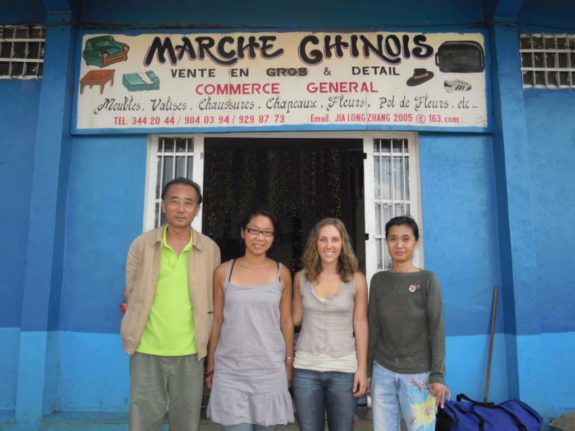
Embracing My Changing Identity
These 27 months in Cameroon planted a seed for me to move to China, where I attempted to reconcile my identity as a Taiwanese-American in yet another culture; diving deeper within the Asian portion of my Asian-American label.
As we expand our global lives, culture identities become more complex, but fascinating. The melange of different heritages creates unique sub-cultures that we should all embrace and promote. Social media has helped culture integration stories to spread, and I think about how my 12-year-old self would have benefited from hearing these stories.
Upon reflection, my intense integration to become an American taught me how to fully embrace another culture, and not live in a cocoon. Yet, as with all things in life, balance is important. I am so grateful life events had led me to rediscover my roots, and I didn’t completely abandon my cultural upbringing.
Today, I am proud of my global Taiwanese-American-con-French-Husband identity; this identity will morph into something different as I continue to experience various cultures that the world has to offer. Whatever version, I am glad I no longer feel the need to shed a part of myself in order to adopt a new culture.
Did you battle through similar culture identity crises? Please drop a link to share your stories in the comments. I would love to bring more of these stories to light!

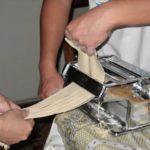
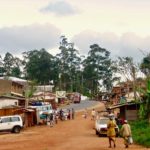

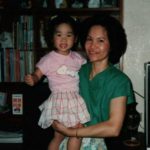
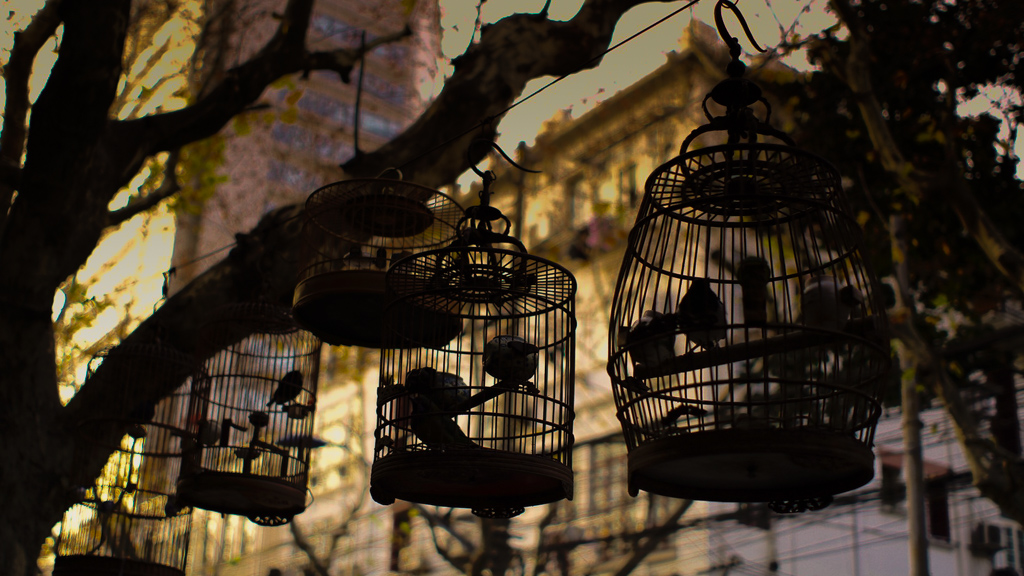

This article resonated with me as a Korean American Adoptee who grew up in an Italian/Jewish New York family. I thought I would discover my Asian identity more when I moved to Korea, but it confused me even more. I’m currently serving in Zambia where there’s a sizable Chinese population. My experience of always being called “China” is not understood by the 95% of the PCVs here. I haven’t seen an Asian face in months! There’s nothing I can do really, but reading this and knowing I’m not alone in this identify confusion helps! Thank you.
So glad to hear it resonates. Identity struggles are increasingly more common in our globalized world. You are definitely not alone!
Thanks for sharing your story. My wife Dian left Vietnam for the U.S. as a young girl. She had not been back since. Although she doesn’t like to talk much about that part of her life, she is very excited to visit Vietnam and Southeast Asia in general. I am forwarding this story to her, I think she will enjoy it very much.